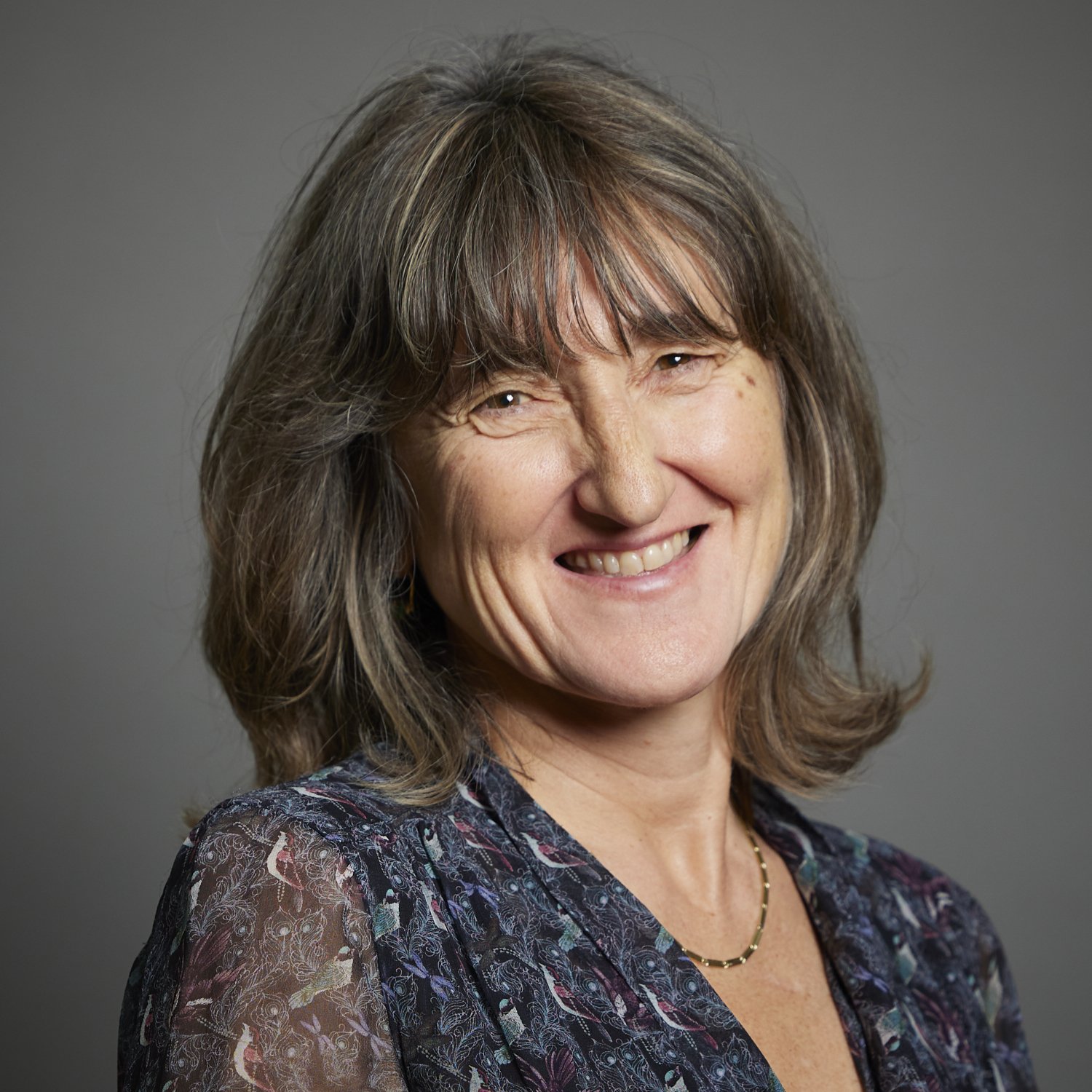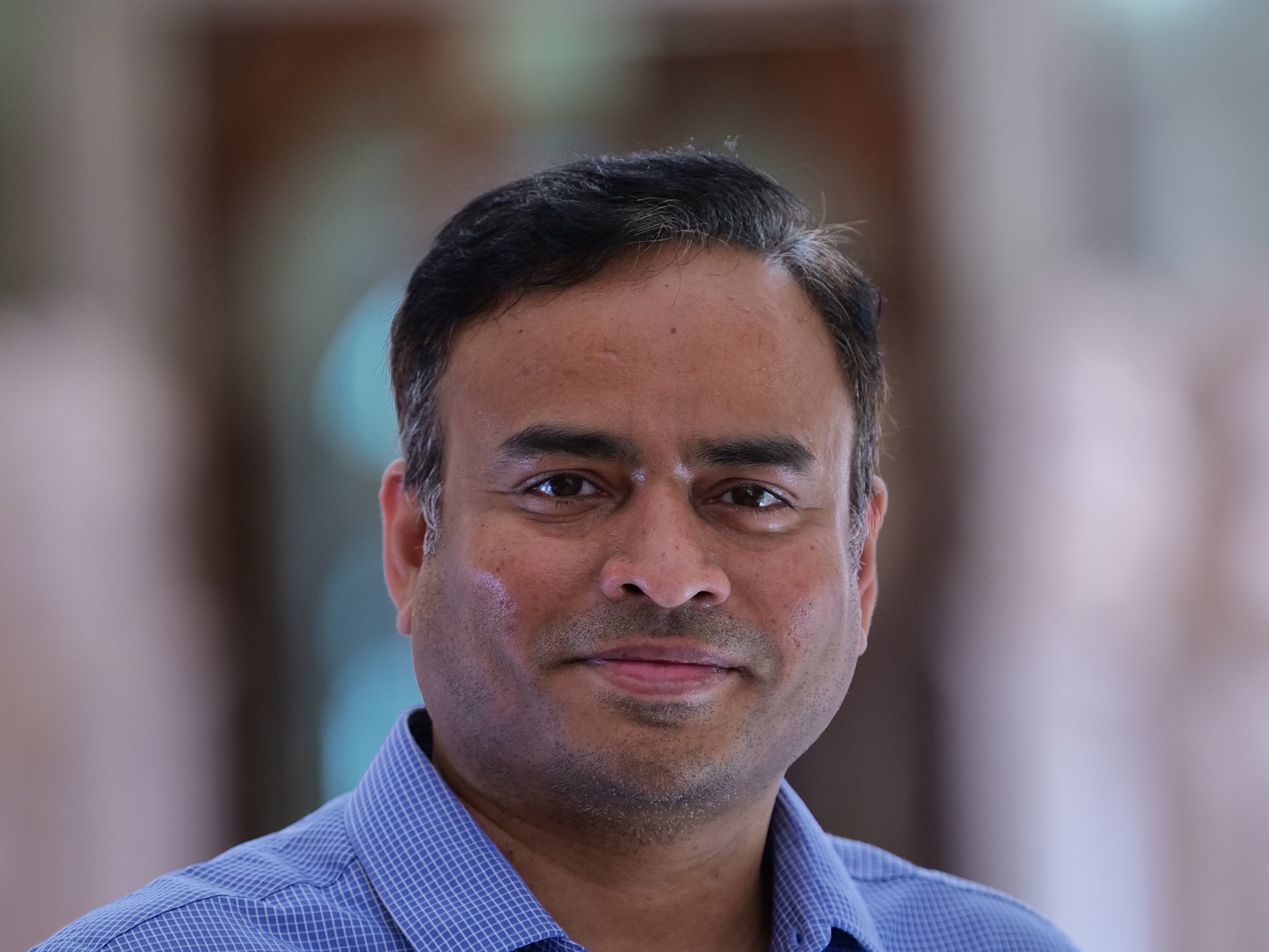Speakers
Generation AI Symposium Saturday 14 September
Reuben College Hosts
Dr Andrew Serazin
Dr Andrew Serazin is the Director of the Global Challenges Programme and a Senior Research Fellow at Reuben College. As a researcher, entrepreneur, and executive, Dr Serazin has worked to bring science, technology, and the humanities to address some of humanity’s greatest challenges.
Professor Lord Tarassenko
Professor Lord (Lionel) Tarassenko CBE FREng FMedSci is the first president of Reuben College, and Theme Lead for the AI & Machine Learning research cluster. He is a world-leading expert in the application of signal processing and machine learning to healthcare, with a strong track record in translation to clinical medicine.
Keynote speakers
Professor Sarah-Jayne Blakemore
Sarah-Jayne Blakemore FBA FMedSci FRS is Professor of Psychology and Cognitive Neuroscience at the University of Cambridge, and leader of the Developmental Cognitive Neuroscience Group. Her group's research focuses on the development of social cognition and decision making in the human adolescent brain, and adolescent mental health. Her group runs behavioural studies in schools and in the lab, as well as neuroimaging studies, with adolescents and adults. You can read more about the group and their research here.
Professor Blakemore has been awarded several national and international prizes for her research. She is an Honorary Fellow of St John's College, Oxford, and a Fellow of the British Academy, the American Association of Psychological Science, the Academy of Medical Sciences and the Royal Society
Sir Anthony Seldon
Sir Anthony Seldon is a widely-respected authority on all matters relating to education, AI, Number 10 and Britain’s prime ministers. His first book on a prime minister, Churchill’s Indian Summer, was published forty years ago. He has since written or edited more than 50 books, many of which are best-sellers, including definitive insider accounts of the last seven prime ministers. Sir Anthony served as honorary historian of Number 10 Downing Street, chair of the National Archives Trust, and has interviewed most of the senior figures who have worked in Number 10 in the last fifty years. His most recent books are – The Path of Peace: Walking the Western Front Way (2022), Johnson at 10: The Inside Story (2023) and Truss at 10: How Not to Be Prime Minister (2024).
For 20 years he was a transformative headmaster, first at Brighton College and then Wellington College, one of the country’s leading independent schools. From 2015 to 2020 he served as Vice-Chancellor of the University of Buckingham. In 2023 he was appointed Head of Epsom College for 18 months following the sudden loss of the Head. His foresight, vision and understanding of AI and its huge impact on education is renowned. He has now returned to Wellington College as the Founding Director of Wellington College Education to lead its development and evolution of global education, and to shape and refine what education should mean in the mid-21st century.
Baroness Beeban Kidron
Baroness Kidron is a leading voice on children’s rights in the digital environment and a global authority on digital regulation and accountability. She has played a determinative role in establishing standards for online safety and privacy across the world.
Baroness Kidron sits as a crossbench peer in the UK’s House of Lords. She is an advisor to the Institute for Ethics in AI, University of Oxford, a Commissioner on the UN Broadband Commission for Sustainable Development, an expert advisor for the UN Secretary-General’s High-Level Advisory Body on Artificial Intelligence, and Founder and Chair of 5Rights Foundation. She is a Visiting Professor of Practice at the London School of Economics, where she chairs the research centre Digital Futures for Children, and a Fellow in the Department of Computer Science, University of Oxford.
Before being appointed to the Lords she was an award-winning film director and co-founder of the charity Filmclub (now Into Film).
Speakers
David Monis-Weston
David Monis-Weston is AI Lead at Purposeful Ventures, the leading charitable venture-builder in the UK, and the former founder and CEO of the Teacher Development Trust, the national charity for effective professional development. He Chaired the Department for Education’s Teachers’ Professional Development Expert Group and advised the Department on Early Career Teachers and school leadership. David taught maths and physics for ten years. He is a trustee of the Teaching Awards Trust, a Fellow of the Chartered College of Teaching and an author of the book Unleashing Great Teaching. A former software engineer, he is involved in the development of ideas around using Artificial Intelligence for teacher development. David speaks and writes frequently for the education sector and national media and has had a number of radio and TV appearances around teaching, teacher development and LGBT issues.
“Big ideas” speakers
Dr Amy Orben
Dr Amy Orben is a UKRI Future Leaders Fellow at the MRC Cognition and Brain Sciences Unit and Fellow of St. John’s College at the University of Cambridge. She leads an internationally renowned research programme investigating the links between mental health and digital technology use in adolescence. This work is supported by key national and international funders, charities and foundations, and she advises governments, health officials and public servants around the world. Her team’s findings have influenced policymakers, educators and parents globally, shaping reactions to teen social media and digital technology use to improve mental health outcomes.
Dr Orben completed her DPhil in Experimental Psychology at the University of Oxford and MA in Natural Sciences at the University of Cambridge. Since returning to Cambridge, she has received a range of prestigious awards including the Association for Psychological Science Rising Star Award (2024), Medical Research Council Early Career Impact Prize (2022) and the British Psychological Society Award for Outstanding Contributions to Doctoral Research (2019). She also received the Society for the Improvement of Psychological Science Mission Award (2020) for her work to improve scientific practice and research culture in her field.
Dr Jun Zhao
Dr Jun Zhao is an experienced academic researcher working on the interaction of human and AI systems. Her current research focuses on investigating the impact of algorithmic systems on our everyday lives, especially for families and young children. Currently, she leads the Oxford Child-Centred AI (OxCCAI) Design Lab at the University of Oxford.
Zelda Yannovich
Zelda Yanovich is Co-Founder of Fam Studios and Visiting Fellow at London School of Economic Digital Futures for Children. She is an Advisory Board Member for the Generation AI initiative. She has led deep work on digital play for children and young people as well as leading UK government funded exploration on how AI can unlock play, imagination and creativity, for example. Prior to Fam Studios, Zelda led the Parenting Initiative at LEGO Foundation focused on play at home and in the community and was Chair and Strategy lead for the Real Play Coalition focused on bringing play back to cities globally with LEGO Foundation, IKEA, ARUP, UNICEF Child Friendly Cities programme. She co-led the development of the Urban Play Framework and co-authored Reclaiming Play In Cities and was a contributing author for Nature Based Play. Her background builds on her early career at the United Nations focused on issues of equity and inclusion in childhood and adolescence.
Professor Andrew Przybylski
Andrew K. Przybylski is the Professor of Human Behaviour and Technology at the University of Oxford. Professor Przybylski investigates how online social media and video games platforms shape human motivation and influence the health and well-being of their users.
Professor Przybylski has published more than 100 peer reviewed academic and conference papers which have been cited more than 20,000 times in the past decade. He is a frequent commentator on the effects of internet-based technology on our lives and works closely with national and global policymakers to empower users and independent scientists to address the most pressing questions of health and human development in the digital age.
Professor Przybylski’s research, commentary, and contributions are regularly featured in The Guardian, The New York Times, Wired Magazine, The Washington Post, The Financial Times, The Week, and international outlets including the BBC World Service and PRI’s The World.
In acknowledgment of his scientific and policy achievements he was recently appointed as an Honorary Professor at The Educational University of Hong Kong’s Centre for Psychosocial Health where he is working to build mutually beneficial relationships between the students and faculty of both institutions.
Krishna Raju Jampana
Krishna leads DPI adoption efforts at EkStep Foundation, bringing over 20 years of experience across private, government, and social impact sectors. He played a key role in developing DIKSHA, India's first education Digital Public Infrastructure (DPI), and led open-source efforts for Sunbird, which now supports multiple societal transformations using building blocks approach.
Currently, Krishna focuses on identifying and addressing challenges to accelerate global DPI adoption. He is involved in initiatives like DPI-as-a-Packaged Solution (DaaS), working closely with Digital Public Good (DPG) owners and market players such as cloud providers, SIs and ISVs to help countries unlock the value of DPI.
His work bridges technology and social impact, contributing to the advancement of digital infrastructure for public good.
Innovative Finance Panellists
Karlis Kanders
Karlis is the Head of Data Science for Discovery and Innovation at Nesta, working in the Discovery and Data science teams. He uses machine learning and network analysis to uncover emerging trends, promising technologies and interventions that will shape our future.
Previously, Karlis was working on data-driven innovations for navigating the labour market and connecting people to good work, as part of Nesta’s Open Jobs programme.
Prior to Nesta, Karlis completed a PhD in Computational Neuroscience at ETH Zurich in Switzerland. His research focused on studying the dynamics of complex biological networks using the theory of nonlinear dynamical systems, numerical simulations and experimental data analysis.
Esme Verity
Esme has worked in social finance and impact investing for over 10 years. She began as a social entrepreneur and has transitioned into an advisor, consultant and investor. Currently, she is the CEO and founder of Considered Capital, an educational platform with a mission to help impact entrepreneurs access the right capital. They work with foundations, innovative funders and impact investors to move more money to impact entrepreneurs. Esme's expertise covers impact investing, social finance and alternative funding. Prior to founding Considered Capital, she was the Director of Chapters at Zebras Unite, an international and intersectional hybrid cooperative dedicated to creating new financial instruments for the next economy. Esme is also an angel investor in the UK through several women-only angel syndicates and is a Coralus Activator.
Siddhartha Jha
Siddhartha grew up in India and has a Bachelor’s Degree in Electrical Engineering from the Indian Institute of Technology, an MSc. in Biomedical Engineering and a CAS in Computer Science with a focus on Artificial Intelligence, both from the Swiss Federal Institute of Technology in Zurich. He brings many years of interdisciplinary professional experience in technology, research, and innovation roles in different organisations. Siddhartha is responsible for supporting Fondation Botnar’s work on the use of data, digital & frontier technologies, and innovation. Siddhartha draws his inspiration from various disciplines and is deeply interested in facilitating a responsible and innovative use of technology and design for the common good.














